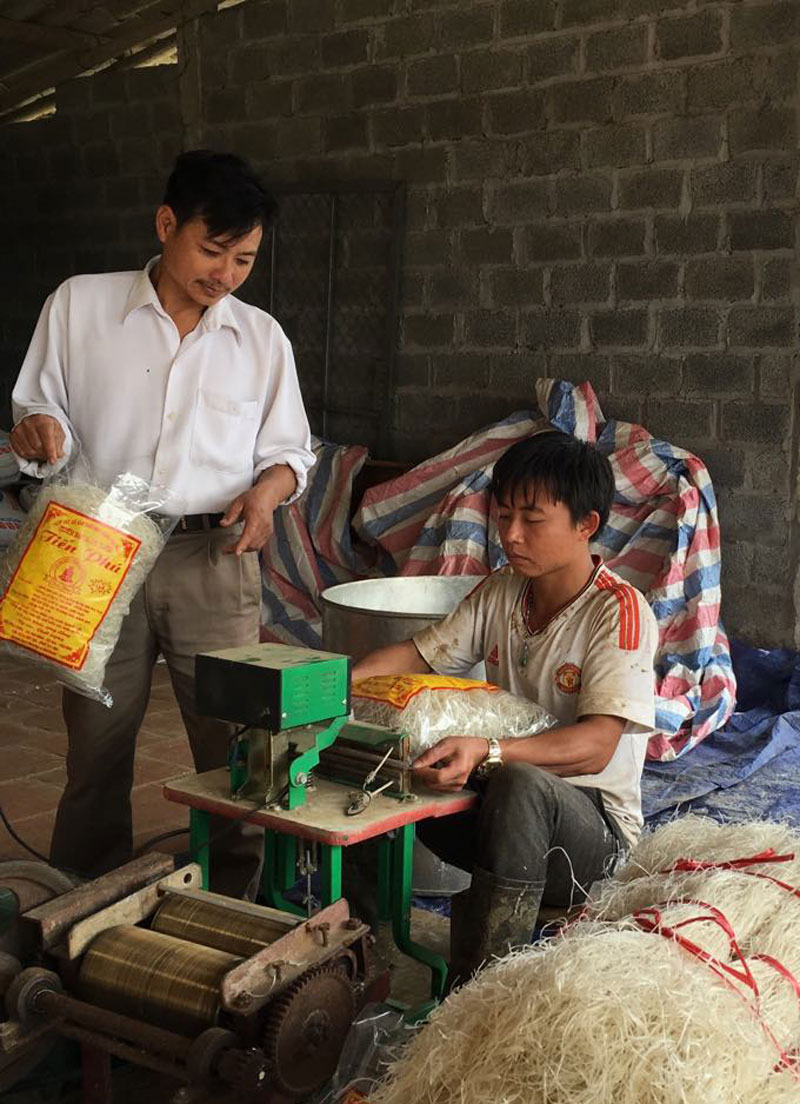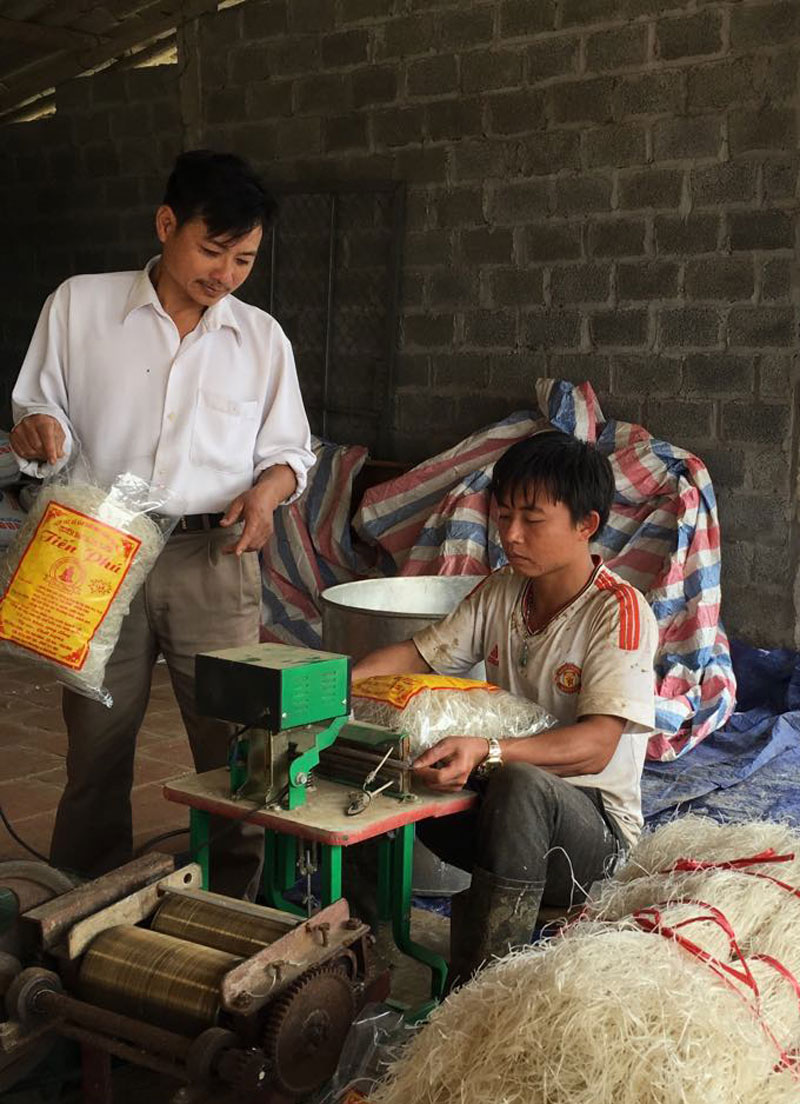
(HBO) - Ky Son district has a variety of agricultural products with specialties in the region, which are well - known and popularly used by consumers, such as wampee fruit, honey of Dan Hoa and Dan Ha communes; vermicelli of Phu Minh commune; sweet rice, mountainous chickens, Da River fish of Hop Thinh commune; Indigenous meat pigs in Doc Lap commune.

Safe vermicelli products produced by Tien Phu
Cooperative, Phu Minh commune
According to the survey and data collection
for the project "National Program of each commune, one product", the
whole district has 30 products of advantage, belonging to 5 product groups, 22
of which belong to food group, 1 is in
the beverage product, 4 are in the herbal products, 2 in souvenir - furniture -
decorations products and 1 is in the product group of rural tourism service.
The consumption market for these products is in the province and surrounding
provinces. On the subject of production, there are 41 organizations and
individuals producing local products, including 1 limited company, 6
cooperatives, 27 cooperative groups, 7 households of production and business,
41 production subjects who have manual skills, no subject level of automation
technology, mechanical engineering A total of 3,243 laborers are participating
in the production entities.
Creating the brands for key products is a
matter being promoted by Ky Son district, starting with the Program of one
product in each commune in the period of 2018 - 2020. The district has started
the program by holding a convention to thoroughly announce to the staff of
departments, sectors, and boards of the district, People's Committees of
communes, towns and individuals and units to participate. The district also
approved the plan for the implementation of one-commune-one-product program in
the period of 2018-2020 and consolidate the Steering Committee and supplement
the operation regulation of the Steering Committee for National Target Programs
in the 2016-2020 period.
The district will strive to standardize at
least 25% of existing local products (about 10 products) at the end of the
project period.
According to data from the Hoa Binh Provincial Party Committee, the industrial production index for the first six months of 2025 is estimated to have increased by 20% compared to the same period last year. This marks the highest year-on-year growth rate for this period since 2020.
In the first six months of 2025, Hoa Binh province’s export turnover was estimated at 1.145 billion USD, marking an 18.11% increase compared to the same period in 2024. Import turnover was estimated at $ 804 million, a 17.15% increase, which helped the province maintain a positive trade balance.
The lives of the ethnic minority farmers in Tan Lac district have gradually improved thanks to the new directions in agricultural production. This is a testament to the collective strength fostered through the professional associations and groups implemented by various levels of the district’s Farmers’ Union.
With the motto the "product quality comes first,” after nearly one year of establishment and operation, Muong village’s Clean Food Agricultural and Commercial Cooperative, located in Cau Hamlet, Hung Son Commune (Kim Boi district), has launched reputable, high-quality agricultural products to the market that are well-received by consumers. The products such as Muong village’s pork sausage, salt-cured chicken, and salt-cured pork hocks have gradually carved out a place in the market and they are on the path to obtaining the OCOP certification.
In the past, the phrase "bumper harvest, rock-bottom prices" was a familiar refrain for Vietnamese farmers engaged in fragmented, small-scale agriculture. But today, a new spirit is emerging across rural areas of Hoa Binh province - one of collaboration, organisation, and collective economic models that provide a stable foundation for production.
Maintaining growing area codes and packing facility codes in accordance with regulations is a mandatory requirement for agricultural products to be eligible for export. Recently, the Department of Agriculture and Environment of Hoa Binh province has intensified technical supervision of designated farming areas and packing facilities to safeguard the "green passport" that enables its products to access international markets.



